Various Governor-General and Viceroys has lead the India during British reign or Imperial period. These men has made some certain laws and taken decisions and acts which favoured and hampered the growth of the country. Most of the Governor-General and Viceroys of India has commanded over the Indian systems. We have provided below the list of Governor-General and Viceroys of India and pdf can also download.
Governor General of Bengal
Candidates can also check the Governor General of Bengal list who have ruled from 1772 to 1832 by clicking on below link.
Governor General of Bengal and their work In English PDF
Governor Generals of India (1833-58) and their works
First Governor General of India – Lord William Bentick (1833-35)
- First Governor General of India and was known as the liberal Governor General.
- Bentick suppressed female infanticide and child sacrifice.
- He also established first Medical College in Calcutta (i.e. Kolkata) declared that English should be the official language of higher education and India.
- He brought out social reforms such as abolition of Sati Pratha with the help of Rajaram Mohan Roy, Suppression of Thuggee.
- In 1829, Bengal Sati Regulation
- In 1833, Charter Act and Saint Helena Act
- In 1835, English Education Act
|
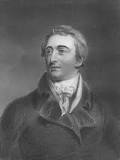 |
Sir Charles Metcalfe (1835-36)
- Repealed 1823 Licencing Regulation.
- He is also known as Liberator of India Press because he passed the famous Press Law which liberated the press in India i.e. he held the post temporarily and removed all the restriction on the Vernacular press.
|
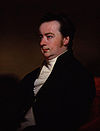 |
Lord Auckland (1836-42)
- First Anglo-Afghan war – great blow to the prestige of the British in India.
|
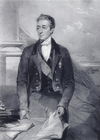 |
Lord Ellen borough (1842-44)
- He brought an end to the Afghan War and annexation of Sindh Province for British in 1843.
- War with Gwalior and abolition of slavery (1843) occurred during his tenure.
- He became first Governor General of India to be recalled for defying the orders of the Court of Directors of East India Company.
|
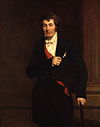 |
Lord Wilberforce (1844)
- He held the post temporarily as Governor General of India.
|
Lord Hardinge (1844-48)
- The First Anglo-Sikh War (1845–46)
- Second Anglo-Sikh War (1848–49)
- Treaty of Lahore, 1846 (marked the end of Sikh sovereignty in India)
- Gave preference to English educated in employment.
|
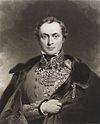 |
Lord Dalhousie (1848-56)
- Introduced Doctrine of Lapse (Captured Satara (1848), Jaitpur and Sambhalpur (1849), Bhagat (1850), Udaipur (1852), Jhansi (1853) and Nagpur (1854)).
- Hindu Widow remarriage bill was passed.
- Fought 2nd Anglo-Sikh War (1848-49) and annexed the whole of the Punjab.
- He made Shimla the summer capital.
- Charles Wood Despatch which provided the proper system of education from School to University.
- Second Anglo-Burmese War (1852) and annexation of Lower Burma or Pegu.
- Annexation of Berar in 1853; Annexation of Avadh in 1856 on charge of mal-administration.
- First Railway line connecting Bombay and Thane in 1853.
- First Electric Telegraph Line was laid between Diamond Harbour to Calcutta.
- Engineering College was established at Roorkee.
- Post Office Act, 1854
- Established Public Works Department & Administration reforms.
- Started work on the Grand Trunk Rod and developed the harbours of Karachi, Bombay and Calcutta.
|
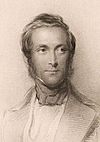 |
Viceroys of India and their contribution/ works pdf (1856 to 1950)
Lord Canning (1856-62)
- Revolt of 1857.
- Universities of Calcutta, Bombay and Madras were opened in 1857.
- He was the last Governor-General appointed by the East India Company and first Viceroy.
- Passed the Act of 1858, which ended the rule of the East India Company.
- The Doctrine of Lapse was withdrawn. The Indian Penal Code (1859) was passed.
- Income tax was introduced for the first time in 1858.
- The Indigo riots in Bengal.
- The Indian Councils Act of 1861 was passed, which proved to be a landmark in the constitutional history of India.
- Indian High Court Act, 1861. Under this act, High Courts were opened in 1865.
- Bombay and Madras founded in 1857.
- Wahabi movement occurred during his tenure.
|
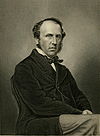 |
Lord Elgin-I (1862-63)
- Wahabi movement get suppressed
|
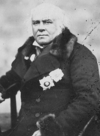 |
Sir Robert Napier (1863)
- He held the post temporarily
|
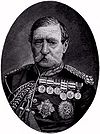 |
Sir William T. Denison (1863-64)
- He held the post temporarily.
|
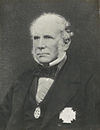 |
Lord Lawrence (1864-69)
- War with Bhutan 1865.
- Establishment of Shimla as India’s summer capital in 1863
- High Court was established at Calcutta, Bombay, and Madras in 1865.
- He created Indian Forest Department.
- Opened telegraph line with Europe.
- He introduced various reforms and became the member of Punjab Board of Administration after the second Sikh war.
- He was known as the Savior of Punjab.
- The Punjab Tenancy Act, was passed.
|
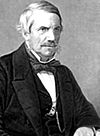 |
Lord Mayo (1869-72)
- Introduction of financial decentralisation in India and made first Provincial Settlement in 1870.
- He established the Department of Agriculture and Commerce.
- He established Rajkot College in Kathiawar and Mayo College in Ajmer for the Indian princess.
- First Census of India was held during his time in 1871.
- He organized the Statistical survey of India.
- He was the only Viceroy to be murdered in office by a convict in the Andaman in 1872.
- He introduced state railways.
|
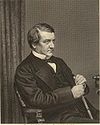 |
Sir John Strachey (1872-72)
- He held the post temporarily
|
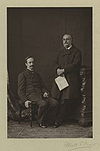 |
Lord Napier of Merchistoun (1872 – 1872)
- He held the post temporarily
|
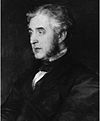 |
Lord Northbrook (1872 – 1876)
- In 1872, Kuka Rebellion in Punjab led by Ram Singh.
- Famine in Bihar (1876).
- He resigned over Afghanistan question.
- Visit of Prince of Wales in 1875 occurred.
- Trial of Gaelcwar of Baroda occurred
- Kuka movement in Punjab occurred during his tenure.
|
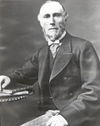 |
Lord Lytton (1876 – 1880)
- Most unpopular Viceroy of India.
- Arranged the Grand Darbar in Delhi (in 1877), when the country was suffering from severe famine.
- Passed the Royal Title Act, (1876) and Queen Victoria was declared as Kaiser-i-Hind.
- Arms Act, (1878) made it mandatory for Indians to acquire licence for arms, the infamous Vernacular Press Act, (1878) and Lowered the maximum age of ICS from 21 to 19 years.
- Second Anglo-Afghan War 1878-80.
- Famine Commission under Starchy was appointed by him in 1878.
- In 1876, Deccan Agrarian Relief Act was passed.
|
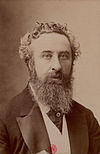 |
Lord Ripon (1880-84)
- He was appointed by the Liberal Party under Gladstone.
- Repeal the Vernacular Press Act in 1882.
- The first Factory Act, came in 1881 (Improve the labour condition).
- In rural area, Local Boards were set up in 1889, Madras Local Board Act, was passed. He was famously known as “Father of Local Self Government”.
- First Official Census in India (1881).
- Famine code was adopted (1883).
- Appointed Hunter Commission for education reforms in 1882.
- Illbert Bill controversy (1883-84), which empowers Indian Judges to inquire into European cases.
- Foundation of Punjab University.
|
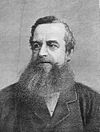 |
Lord Dufferin (1884-88)
- Third Anglo-Burmese War and annexation of Burma (1885).
- Formation of Indian National Congress (INC) in 1885.
- Bengal Tenacy Act, in 1885.
- Dufferin called INC as ‘microscopic minority’.
|
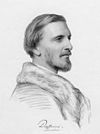 |
Lord Lansdownne (1888-94)
- Factory Act, of 1891.
- Indian Council Act, of 1892.
- Civil Services were classified-Imperial, Provincial and Subordinate services.
- In 1891, Age of Consent Act, under which marriage of girl below 12 years were prohibited.
- Appointment of Durand Commission to define the line between British India and Afghanistan.
|
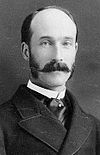 |
Lord Elgin II (1894-99)
- The Santhal uprising of 1899.
- Mundas uprising of 1899.
- Lyall Commission appointed after famine.
- Assassination of two British officials by the Chapekar brothers in 1897.
- Plague spread in Bombay.
|
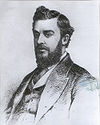 |
Lord Curzon (1899-1905)
- Appointed a Police Commission in 1902 under Andrew Frazer.
- Universities Commission appointed in 1902, under Thomas Railey.
- Indian Universities Act, passed in 1904.
- Famine Commission under Macdonell.
- A new department of commerce and industry established.
- Partition of Bengal (16th October, 1905).
- The risings of the frontier tribes in 1897-98 led him to create the North-Western Frontier Province.
- Passed the Ancient Monuments Protection Act, (1904) to restore India’s cultural heritage.Thus, the Archaelogical Survey of India was established.
- Passed the Indian Coinage and Paper Currency Act, (1899) and put India on a gold standard.
- PUSA Agricultural Institute in 1903.
|
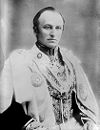 |
Lord Minto-II (1905-10)
- Swadeshi Movement.
- Surat split (split in Congress between moderate and extremist, 1907).
- Indian Council Act, 1909 and Morley-Minto Reforms.
- Foundation of Muslim League, 1906.
- Newspapers Act, 1908.
|
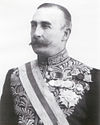 |
Lord Hardinge-II (1910-16)
- Annulment of the partition of Bengal in 1911.
- Bomb was thrown at Hardinge near Chandni Chowk but escape unhurt.
- Transfer of capital from Calcutta to Delhi in 1911.
- Darbar in Delhi and Coronation of George V in 1911.
- In 1911, Bihar and Orissa separated from Bengal and became a new state.
- Establishment of Hindu Mahasabha by Medan Mohan Malviya (1915).
- Gandhiji came back to India from South Africa (1915).
|
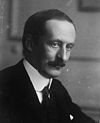 |
Lord Chelmsford (1916-21)
- Government of India Act, 1919 also known as Montague-Chelmsford Reforms.
- Repressive Rowlatt Act, (1919).
- Jalliawala Bagh Massacre (13th April, 1919).
- Home Rule Movement both by Tilak and Annie Beasant.
- Saddler Commission on Education in 1917.
- Appointment of Hunter Commission to look into Jalliawala Bagh Tragedy.
- Chambers of Price, 1921 established.
- Non Co-operation Movement Started Khilafat movement.
- An Indian Sir SP Sinha was appointed the Governor of Bengal.
- Death of Tilak (1920).
|
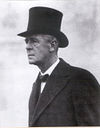 |
Lord Reading (1921-26)
- Rowlatt Act was repealed along with Press Act, of 1910.
- Holding of the simultaneous examination for the ICS in England and India from 1923.
- Prince of Wales visited India in November, 1921.
- Moplah Rebellion (1921) took place in Kerala.
- Chauri-Chaura incident and withdrawal of Non-Corporation Movement.
- Formation of Swaraj Party by CR Das and Motilal Nehru (1923).
- Communist Party of India founded by MN Roy (1925).
- Kakori Train Conspiracy (1925).
- Vishwabharati University (1922).
- Lee Commission (1924) for public services.
- Young Hilton Committee for currency note (1926).
- Royal Commission on agriculture.
- RSS founded in 1925.
- Murder of Swami Sraddhanand.
|
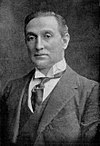 |
Lord Irwin (1926-1931)
- Simon Commission visited India in 1928.
- Buttler Commission in 1927.
- Deepavali Declaration by Lord Irwin (1929).
- All India Youth Congress, 1928.
- Nehru Report, 1928.
- Lahore Session of the Congress, (1929) and Poorna Swaraj Declaration.
- First Round Table Conference 1930, Congress boycotted it.
- Civil Disobedience Movement, 1930 started with.
- Dandi March (12th March, 1930).
- Gandhi-Irwin Pact, 5th March, 1931.
- Sharda Act, 1929, under which marriageable age of girls (14 years) and boys (18 years) was raised.
- Jawaharlal Nehru and Subhash Chandra Bose founded Independence of India League.
|
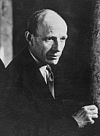 |
Lord Wellington (1931-36)
- Second and Third Round Table Conference.
- Communal Award by Mcdonald (British PM).
- Government of India Act, 1935.
- Poona Pact was signed.
- Orissa separated from Bihar (1936) and new province Sind was created (1936), also Burma separated from India, 1935.
- All India Kisan Sabha, 1936.
- Foundation of Congress Socialist Party, 1934.
- Burma separated from India.
|
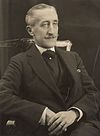 |
Lord Linlithgow (1934-44)
- First General Election (1936-37) Congress Ministries.
- SC Bose president of 51st INC (1938).
- Forward Block founded in 1939.
- Deliverance day by Muslim League 1939.
- Lahore Resolution of Muslim League (1940) demand of Pakistan.
- August Offer, 1940.
- Cripps Mission, 1942.
- Quit India Movement, 1942.
- In 1943, Muslim League celebrated Pakistan day.
- “Divide & Quit” at the Karachi Session (1940).
- Passing of Quit India resolution (1942).
- In Haripura Session (1939) of Congress declared Complete Independence.
|
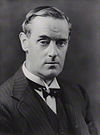 |
Lord Wavell (1943-47)
- CR Formula (Rajaji Formula), 1944.
- Wavell Plan and Shimla Conference, 1945.
- End of 2nd World War in 1945.
- Cabinet Mission came to India in May, 1946. Congress and league both rejected its proposals.
- Muslim League celebrated 16th August, 1946 as “Direct Action Day”.
- INA trials and the Naval Mutiny, 1946.
|
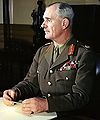 |
Lord Mountbatten (March-August 1947)
- June third plan.
- Last British Viceroy of British India.
- First Governor-General of Free India.
- Boundary commissions under Radcliffe.
- Introduction of Indian Independence Bill in the House of Common.
|
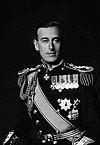 |
Governor Generals of Free India
Lord Mountbatten (1947-48)
- Kashmir acceded to India (Oct, 1947).
- Murder of Gandhi (Jan 30, 1948).
|
C Rajagopalachari (June 1948 – Jan 25, 1950 )
- Last Governor-General of free India.
- The only Indian Governor-General remained in office from 21st June, 1948 to 25th January, 1950.
|
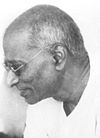 |
Governor General and Viceroy of India pdf Download
Candidates can download the governor general and viceroy of India pdf download by clicking on below link.
Governor General and Viceroy of India pdf Download































